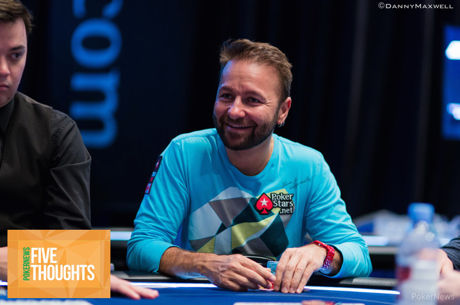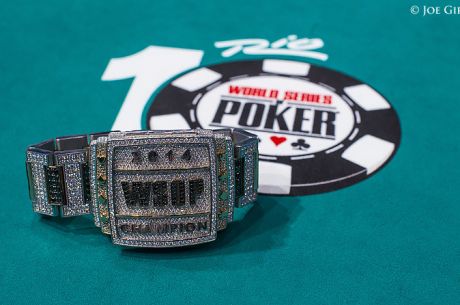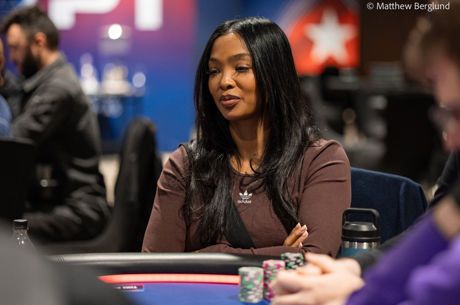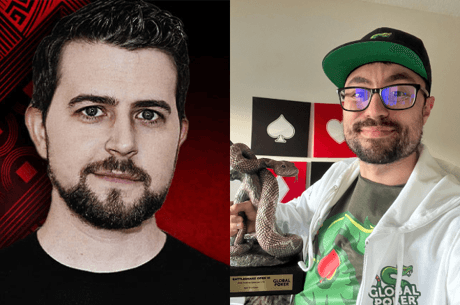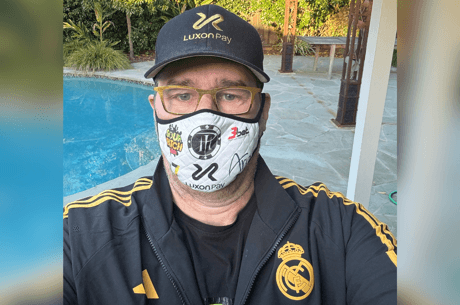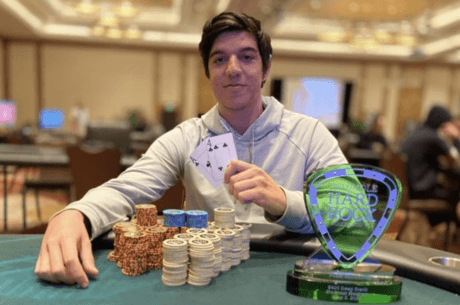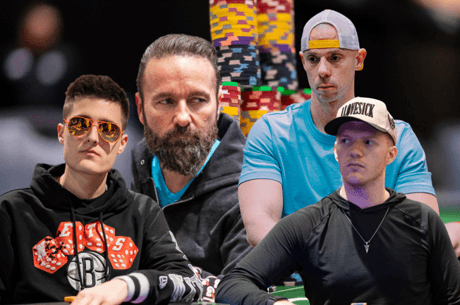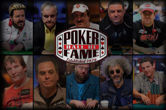Chris Moneymaker on the Hall of Fame, Being an Ambassador and the State of the Game Today
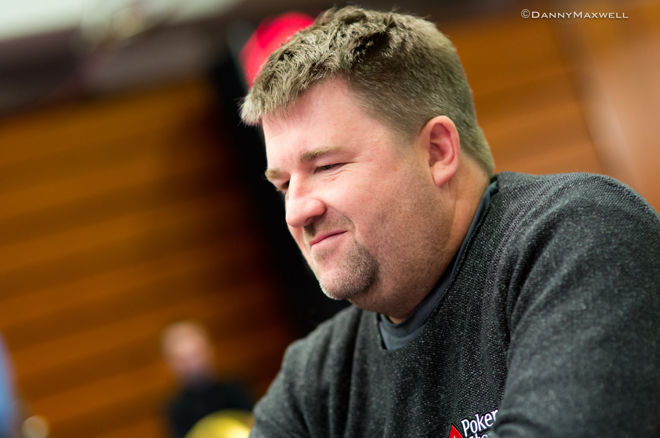
When an accountant and amateur poker player from Tennessee won his way into the 2003 World Series of Poker Main Event through a $39 PokerStars satellite, took on the best professional players on the planet and captured a World title, the game, and countless people's lives, were forever changed.
Chris Moneymaker's legendary story helped ignite the poker boom, drawing huge numbers to the game, but it took a little time before he could see exactly what he'd done.
"I went back to work, because I didn't realize I could be making enough money to retire or quit doing what I was doing," Moneymaker told PokerNews. "It wasn't really until it started airing on TV. They had it on a loop and I guess that really woke me up to the fact there was something to it. Poker was not just a passing fad. It looked like it was going to be around more than just a few years and somehow I was part of the driving factor behind all that."
Moneymaker did enter into a sponsorship agreement with PokerStars right after winning the World title, but it was a rather small one, since neither he nor the company had any concept of what poker sponsorship should entail.
"They didn't really know what to offer and I definitely didn't know what to take," Moneymaker said. "It didn't seem like something that was going to significantly change my life. It wasn't until a bit later on the next year that the money got significant."
At this point, Moneymaker wasn't really ready to take poker seriously enough to transition into a profession.
"I didn't think of poker as a career really; it was more of a hobby and something I enjoyed on the side. Then my boss came in one day and said if you don't quit, I'm going to fire you, because I think you've got something more important to do."
Few people remember this, but in the year after his historic WSOP win, Moneymaker did make runner-up in the World Poker Tour Season 2 Bay 101 Shooting Star Championship Event in San Jose, California for $200,000. He lost to poker pro Phil Gordon heads up.
However, he maintains that his calling, the one his accounting firm boss was alluding to, was always more about being a poker ambassador than a full-time grinder.
I didn't think of poker as a career really; it was more of a hobby and something I enjoyed on the side.
"I was never a guy that wanted to travel all the time and grind every series all over the place," he said. "I always wanted to help grow the game more as an ambassador than play all the time. I still love to play and I enjoy the game, but I enjoy playing when I want to, not when I have to."
Moneymaker's endorsement deal included a number of personal appearances at poker events on behalf of the PokerStars brand and a series of popular TV commercials that aired countless times as the game boomed and the airwaves filled with poker content. It made the story a legend and the man a star.
That much attention was bound to attract some negativity, and in the ensuing years, Moneymaker's reputation as a player took a hit, with an increasingly savvy and outspoken market of poker fans and players often painting his big win as a product of luck rather than skill.
"Honestly, I'm the type that could really care less what all these people think," Moneymaker said. "I'm the first to admit that I was very lucky and very inexperienced. But I dare anybody who has won [a WSOP Main Event] to say they didn't get lucky. I lasted seven days, so I must have been doing something right. I played for seven days, so it couldn't have been all luck. I had to know what I was doing at least a little bit. I had confidence in my game. I still do and I've never based who I am on what other people think."
But Moneymaker's never felt that he's had to prove himself when it comes to playing poker. He just plays when and where he wants to.
"If I felt like I had to, I would have gone out and grinded the circuit to try to prove it wasn't a fluke, but I haven't done that. The very next year I went back to the World Series and only played six events. I've never played more than six or seven events a year there. I've never gone out on the road and grinded series after series. I pick and choose the events I play based on what my sponsors want me to do and whether they are at really cool places."
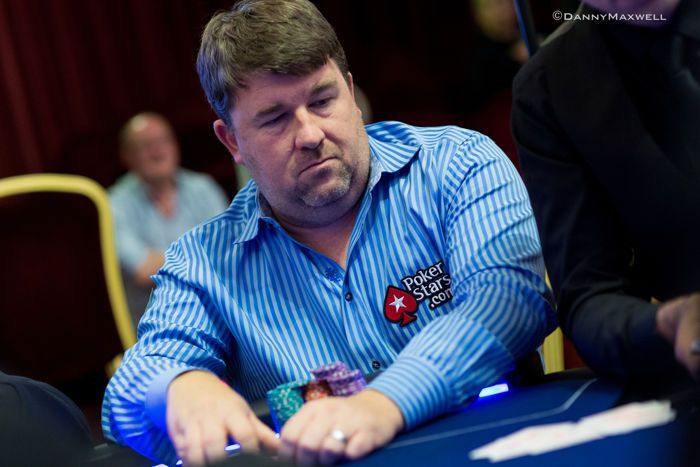
These cool places range from South America to Europe and China.
"I've seen almost everything I wanted to see," he said. "I'm very thankful for what the game has given me and I've never felt like I had anything to prove."
He did feel like he had a responsibility to give something back to the game that has given him so much. Thus, Moneymaker has always conducted himself accordingly: signing autographs, posing for photos and making sure that when someone sits down at the table to play with him, they enjoy the experience.
"It's just something that came naturally to me," Moneymaker explained. "After I won, I did all these media appearances and being an ambassador for the game just came naturally. It's part of my personality. I don't have to fake it; it's who I am. I've always been a nice personable guy and it doesn't matter if you're the janitor or the CEO, I'm going to get along with you."
While Moneymaker is a big name in the poker world, he's alright with establishing himself as more approachable than just any star.
"Last year, I was with a PokerStars executive at the World Series and we watched Daniel [Negreanu] walk down the hallway. Everyone was stopping him to take a picture. It was like he was a rock star. Then I walked down the same hallway and everybody wanted to shake my hand. It's like they see me as their best friend. Guys like Daniel, or [Phil] Hellmuth, it's a different approach, but were all ambassadors for the game. I'm just the guy people want to go have a beer with or play poker at a home game with. People see me more as a friend than a poker star. I'm just one of the guys, someone they can relate to and get along with."
There is little doubt his every-man appeal has drawn countless people to the game, including what seems like an entire generation of young players, a fact Moneymaker is often reminded of on the felt.
"It is pretty cool; but when some kid tells you he was 11 when you won, it can also make you feel pretty old," Moneymaker said, laughing. "I still feel like I'm 20-something. It's kind of surreal to hear people say they started playing when they saw you on TV. I'm not sure whether to say sorry or you're welcome. I've probably caused a lot of divorces, started a lot of careers and ended just as many.
Poker is great, but it's not great for everybody. If I helped you find the game and it's a social game for you, that's great. Unfortunately, there's a lot of people that try to make it as a professional and don't. Or they do make it and they hate what they do because all the fun has been taken out of the game and they've spent so long doing it that it's all they can do. It's all they can put on their resume and they have no shot at doing anything else. It's not all positive, but at the end of the day, people saying they got into game because of you is really cool for the most part."
Staying true to himself is important to Moneymaker, who has always been the kind of guy that has put his family first. He says he would love nothing more than to be able to play on PokerStars from the privacy of his own home again.
For this reason, he's doing whatever he can to push for online poker legislation across the United States. Moneymaker has always preferred to play online and always chosen time with his wife and young children over poker, but perhaps even more so these days because of what he sees as a disturbing trend in the game.
"There's just so many professional players in the game right now treating amateurs terribly," he said. "They're constantly telling them how bad they are at the game, and really, all that bad mouthing doesn't make any sense because there would be no game at all if it weren't for weaker players."
Moneymaker said it's disappointing how much he sees this happen.
"Everybody should be able to play the game for fun, have a good time and be treated with respect. If you take a bad beat, then so be it. It doesn't make any sense to attack somebody for that. I made a decision really early on that I was going to try be positive for poker, do the right thing as much as I can and help grow the game that way. I still love the game, and even as a professional player, because if I'm employed at all, it's as that. I feel like I relate well to amateurs and it's my responsibility to do that."
Moneymaker's seen his friends try their hand at the game and walk away because of the atmosphere that's been created when they hit the tables.
"I have friends that will tell me they go down to Tunica, win a hand and have some guy telling them how he can't believe they called with that. They just quit playing because it wasn't fun and they didn't enjoy it," he said. "I ask my friends if they want to play down at the casino this weekend or hang out and do something else, and it's always hang out and do something else nowadays because they say they don't want to give those assholes their money anymore."
He said this is what's keeping new players away from the game, the fact that this sort of behavior happens everywhere you play, every time you play.
"It's a part of what's wrong with poker today," Moneymaker said. "Poker used to be cool. It was something social. Now it's headphones and hoodies and telling players how bad they are. This summer at the WSOP I saw some people laughing at other players. Things like that just look bad for everybody. At the end of day, the industry is not dead. The game's not dying, but it's not growing either, and if we want to grow the game, we have to make it more enjoyable for everybody, help them learn and make it a more sociable environment again, so people can enjoy sitting down and playing."
In the 13 years since his WSOP Main Event win, Moneymaker has made a career doing exactly that. Now 40 years old, he finds himself on the list of nominees for the Poker Hall of Fame for the first time and in the middle of a debate as to whether all he's done for the growth of the game should be considered.
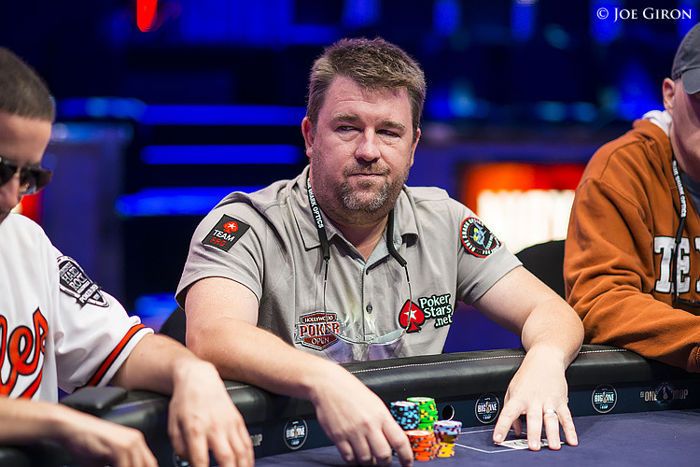
"From a personal standpoint, the Hall of Fame is really not something I ever thought about or cared about that much," Moneymaker explained. "Of course it's a huge honor to be nominated and it would be nice to be recognized by your peers, but at the end of the day, it's not really something I would want for me. It would be cool for my kids or my Dad. I know he would really geek out over something like that, he would love it, but awards have never really been a driving factor for me."
While Moneymaker knows about the Hall of Fame debates, he focuses his time elsewhere.
"Of course I'm aware of the debate. This is my profession, so I like to stay aware of what's going on in the industry. I try to stay in the loop about the latest in online poker legislation, and I follow what's going on with News, Views and Gossip on Two Plus Two and on Twitter. I definitely think there should be a way for people, like Matt Savage, who have done a lot to grow the game and take the industry to where we are today, to get into the Hall of Fame."
He said people deserve to be recognized for what they do for the game, and so, maybe that would make him deserving of that recognition.
"As players we often do very little to help grow the game and we need to recognize the people who do," Moneymaker said. "I know, personally, I don't really fit the qualifications for the Hall of Fame as a player. I don't really play high stakes, I don't grind full time and it's never been my desire to. I know I shouldn't really get in the Hall of Fame as a player, but people can see how I've helped the game grow, that I've been somewhat of a stabilizing force in terms of bringing online poker legislation to the US, that I do what I can do and I've done my fair share for the game. So maybe I deserve to be in the Hall of Fame for that, not just for playing the game."
Be sure to complete your PokerNews experience by checking out an overview of our mobile and tablet apps here. Stay on top of the poker world from your phone with our mobile iOS and Android app, or fire up our iPad app on your tablet. You can also update your own chip counts from poker tournaments around the world with MyStack on both Android and iOS.

